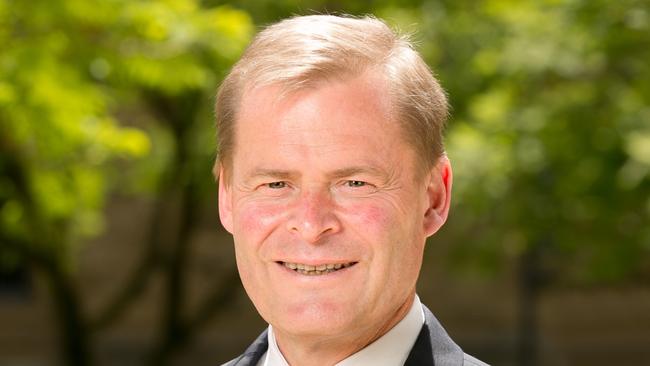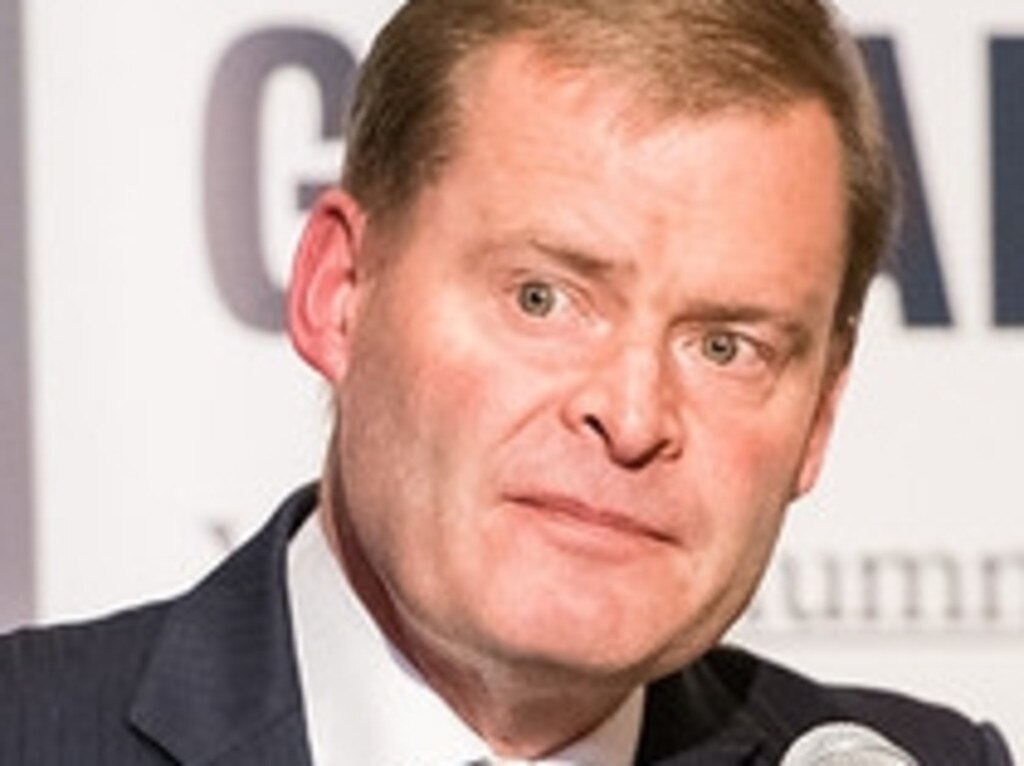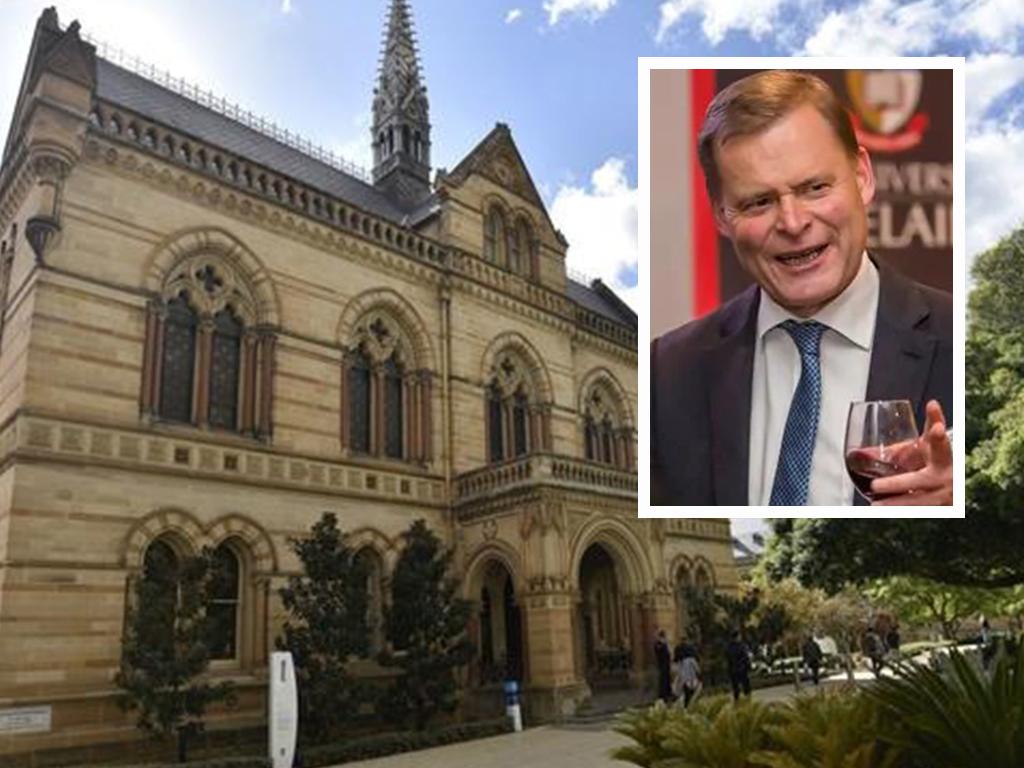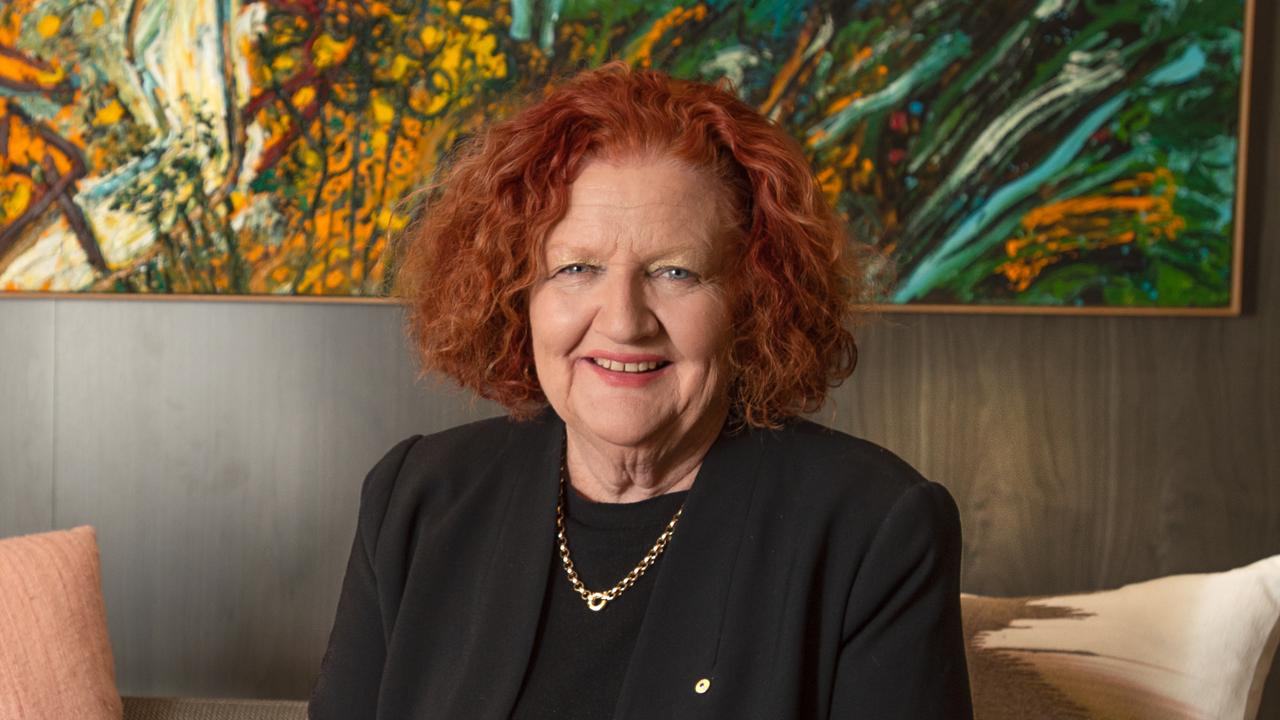Boozy do the final straw for boorish University of Adelaide VC Peter Rathjen
Peter Rathjen’s demise began where the night often ended — with one hand on a glass of wine and the other elsewhere.

Peter Rathjen’s demise began at a swish drinks evening in Sydney’s The Rocks, where the then University of Adelaide vice-chancellor ended the night as he so often did — with one hand on a glass of wine and the other elsewhere.
On the evening of April 11 last year, the garrulous Rathjen was doing what he loved best — holding court in a roomful of graduates at a University of Adelaide alumni function in Sydney, where about 100 members of what’s known in South Australia as the eastern states “brain drain” gathered to network and reminisce.
UA evenings are convivial affairs replete with Coopers beers and fine South Australian wine. By all accounts the vice-chancellor had had more than a couple when the evening took an unpleasant turn. It became the starting point for predatory sexual conduct that would cost him his career, his health and reportedly his marriage. More sadly and importantly, it would leave two good women traumatised, embarrassed and fearful to this day that their identities might be revealed.
Rathjen’s behaviour that night wasn’t an aberrant moment but part of a pattern of misconduct painstakingly identified in an extraordinary ICAC report that painted him as a serial sleaze and habitual liar. Rathjen behaved the way he did at The Rocks because he thought he could get away with it — because up until then, he had been getting away with it.
The ICAC report released by commissioner Bruce Lander QC, who retires this month, is a parting incendiary device dropped squarely in the chancellery of South Australia’s oldest and most exclusive university. It runs to 170 pages but only a condensed 12-page version was released at the request of the university and the women, known only as A and B, who had their bottoms squeezed and were kissed repeatedly against their will by the VC as they tried to make their way to their Sydney hotels unmolested.
The report invites the key question: how did UA hire such a shocking person for the prestigious $1m-a-year role?
The report documents not just Rathjen’s manhandling of the two women at the Sydney function but also serious claims of misconduct involving a graduate student at Melbourne University and an inappropriate affair he conducted with another staff member at UA last year — all of which the former VC lied about to former chancellor Kevin Scarce and the ICAC commissioner.
Separate from the ICAC report, The Weekend Australian has heard concerns from several academics about misconduct by Rathjen when he headed UA’s science department in the 2000s and serious claims about his mismanagement of a sexual assault case at the University of Tasmania while VC from 2011 to 2017.
The university’s former chancellor, Kevin Scarce, chaired the council sub-committee that hired Rathjen. That committee also included the new chancellor Cathy Branson who says that UA had no knowledge about Rathjen’s behaviour when he was appointed in 2018. She was insistent on Wednesday that all possible steps had been taken in conjunction with an outside headhunting firm to assess his bona fides and ensure there were no blemishes on his record..
People close to the selection process said the key attraction of Rathjen for UA was the molecular scientist and biochemist had experience as a VC, a commercial mind, strong networks with international students and was a UA graduate. A university spokesman said it was wrong to suggest — as many had — that there were enough rumours about Rathjen that he should have been rejected for the role. “The university engaged in an extensive due diligence process prior to his appointment,” the spokesman said. “This is the only incident we’re aware of in relation to Professor Rathjen. However, his conduct was unacceptable and one incident involving our most senior leader is one too many.”
The crisis is fuelled by the fact it paid out Rathjen when he quit last month citing ill-health, the very day after he crumbled giving evidence to Lander and admitted he had been lying about his conduct. UA is refusing to release details of the payment, and rejecting criticism from some including former governing council member Chris Schacht, that the university should have waited until the ICAC report before paying Rathjen a taxpayer-funded sum believed to be as much as $1.5m.
The payment has enraged staff who voted two weeks ago to accept a 3.5 per cent pay cut, deferment of a 1.5 per cent pay rise and loss of leave conditions until next July to save 200 jobs slated for the axe as UA reels from a $250m loss over the next two years due to the loss of overseas students.
While the ICAC report only passes judgment against Rathjen, finding him guilty of “serious misconduct”, it makes awkward reading for Branson about how she succeeded Scarce, who had stepped aside when he referred the Rathjen matter to ICAC.
It says that Branson was chair of a four person committee known as “The Rump’’ that acted as the university’s executive.
“The Rump decided that the chancellor (Mr Scarce) should be advised there would be a risk that if he did not resign a motion would be put to Council for him to be stood down during the investigation,’’ Mr Lander says.
“The deputy chancellor (then Cathy Branson) requested that the chancellor (Mr Scarce) meet with her at her home on 26 April 2020,” it says. “At that meeting the chancellor was advised that for the good of the university and for his own good he ought to consider resigning. Otherwise a recommendation would be made to the council that he be stood down.
“The deputy chancellor also advised him that she wished to become chancellor. The chancellor was given a fait accompli. If he did not resign he would be stood down. That would have been extraordinarily embarrassing for him. I do not think that the chancellor should have been put in the position in which he was put.”
Branson denies improper pressure was placed on Scarce. “I did not give the then chancellor any such ultimatum,’’ she said at a press conference on Wednesday.







